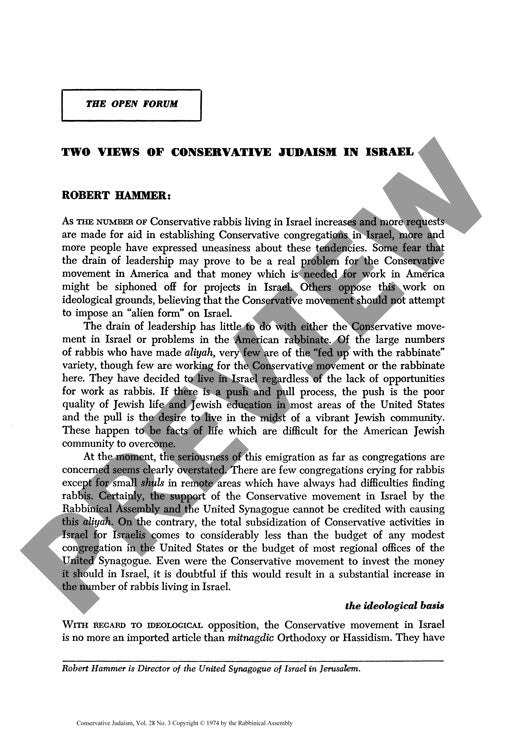Two Views of Conservative Judaism in Isr
Couldn't load pickup availability
Conservative Judaism's contentious expansion into Israel during the 1970s sparked fundamental debates about religious pluralism and American Jewish influence in the Jewish state. Through comparative analysis, contrasting perspectives emerge on both the motivations of American Conservative rabbis emigrating to Israel and the movement's legitimacy within Israeli society. Robert Hammer challenges claims of a problematic "brain drain," revealing that rabbinical emigration stemmed primarily from desires for enhanced Jewish communal life rather than institutional incentives. He positions Conservative Judaism as a legitimate religious alternative in Israel, comparable to other imported Jewish movements, and advocates for comprehensive institutional development including synagogues, educational centers, and rabbinical training programs. Hammer argues that Conservative Judaism's integration of modern scholarship with traditional observance could introduce vital religious diversity within Israel's Orthodox-dominated landscape. Michael Graetz further strengthens the case for American Conservative influence by demonstrating American rabbis' superior achievements in Jewish education and practice compared to their Israeli counterparts. Despite governmental and Orthodox institutional resistance, the evidence suggests that Conservative Judaism's growth in Israel serves both ideological imperatives and practical necessities for the movement's long-term viability and Israel's spiritual development.

More Information
-
Physical Description
-
Publication Information
Published 1974
ISBN
-
Publication Credits
Reuven Hammer

